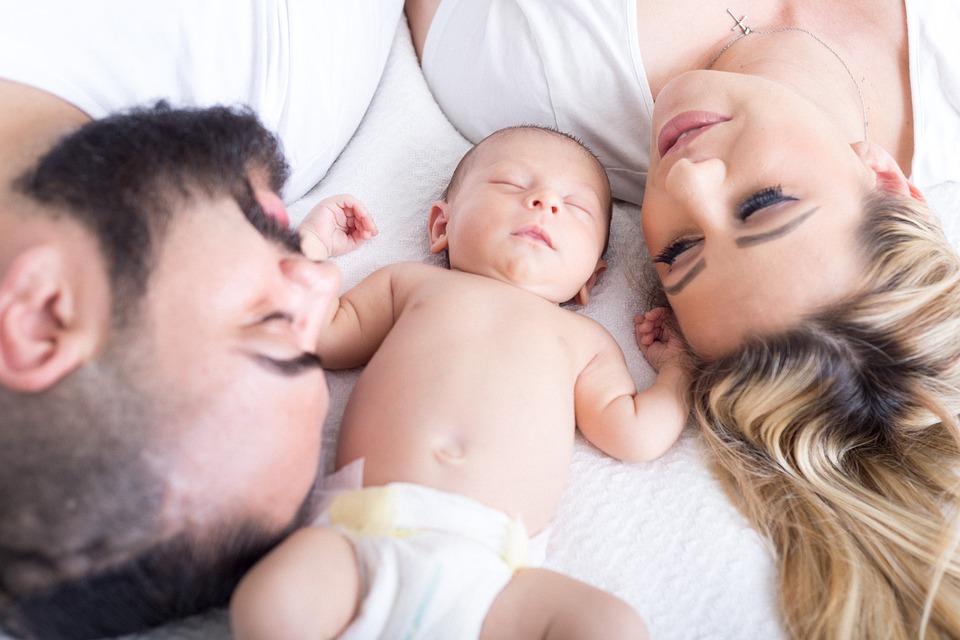What To Expect During Your Baby’s First Month

Congratulations on becoming a parent! There is almost nothing more rewarding that you will experience in life. However, the excitement that you experience also comes with worry and anxiousness that you will get things right during your baby’s first month. What can you expect when you get home? What about sleep schedules? What are normal eating habits? What color should their poop be? No, you’re not the first parent to ask that.

The first day, week, and month seem to pass so quickly when you bring your baby home. Somehow the sleepless nights and the anxiousness dim in comparison to the changes and growth that you will see in your baby. But just like any parent, you have questions that you need answered. So, let’s dive into what you can expect during your baby’s first month.
Coming Home

You may have spent weeks or even months making your home nursery just the way that you want it. You may have researched the safest cribs, toys, cleaning materials, and so much more. You may have found books and games that are supposed to stretch their mind. While all of this is very important, and it’s great that you took initiative to make sure it was all ready for your baby, the first month of having him or her home will have little to do with the toys or clothes that were purchased before their arrival.

Moreover, your baby is going to sleep. A lot. He or she is going to be hungry every two or three hours, on average. And you can guarantee that their diaper is going to need some special TLC. Your baby needs to rest as much as possible during this first month. Some babies cry often during their first month. Some babies are very quiet a majority of the time. It really just depends on your baby. Every baby is different, but you will find yourself getting to know your baby on the deepest level possible with the help of your mother’s intuition. So, don’t worry so much! You’re going to be just fine.
Physical Changes During Your Baby’s First Month

What physical changes can you expect to see during your baby’s first month? Aside from learning that he or she has senses such as taste, vision, hearing, touch, and more, your baby’s appearance will begin to change as well. Here are some common physical changes that you can expect to see during your baby’s first month.
When you first hold your baby after giving birth, you will think he or she is the most beautiful baby ever. However, that little chubby face, cone head, flat nose, and sometimes hairless scalp will be changing quickly. Some new parents are shocked when they see the physical appearance of their baby as soon as it makes its grand appearance at birth. However, you can guarantee that over the first month of life, your baby’s physical appearance will change drastically.

You may begin to notice them stretching out in length instead of remaining curled up as they were in the womb. Their little fingers and toes will begin to move. Their hair may begin to fill in slowly. He or she may make vague expression before and after their eyes open. Their little bellies may begin to fill out and they may put on some cute baby weight. However, don’t be alarmed if your baby doesn’t gain lots of weight quickly. It is common for newborns to actually lose weight in comparison to their birthweight in the first two weeks or so. Just be in close communication with your doctor to be sure that your little one is getting enough food and nutrients.
Sleep Schedule During Your Baby’s First Month

You might be surprised to learn how much you can expect your newborn to sleep during his or her first month at home. In fact, your baby may sleep between 14-17 hours a day, on average! Some babies sleep more. Some babies sleep less. Oftentimes, new parents become concerned when their newborn sleeps the majority of the day. Even though he or she may be the cutest little human on planet earth, your baby needs its rest. Your baby’s mind is growing and developing rapidly during the first month. Trust us, you will have plenty of awake time in the coming months to play and laugh, but right now your little one needs to rest as much as possible.
Feeding Schedule During Your Baby’s First Month

Good chances are that when your newborn is awake, he or she is going to be hungry! Whether you’re breastfeeding or if you’re using formula, newborn babies typically wake to eat every 2-4 hours. After they drink their milk, they need to be burped and you can bet they’re going to be ready for an afternoon nap again. Be sure that when your baby is napping, that he or she is laying flat on his or her back on a mattress with no pillows or smothering/chocking hazards close by to reduce the risk of SIDS.
Some new moms wonder if they are feeding their baby enough, even if their baby doesn’t wake every 2-4 hours to eat. Rest assured that your baby will wake up when he or she is hungry and as long as they are maintaining a healthy weight and make, on average, 8-12 dirty diapers, that you are good to go.
Milestones During Your Baby’s First Month
Here are some of the most common milestones that you may see your baby accomplish during their first month.
- Ability to focus on your face, a toy, or another object close enough to them for more than a few seconds at a time.
- Arm mobility including bringing their hands to their face and in or around their mouth.
- Response to loud noises and even some more subtle noises.
You may have tons more questions and concerns that you want answered. We are happy to help in any way we can. Most importantly, take care of yourself, mom and dad. If you aren’t taking care of yourself during your baby’s first month, you will not be able to take care of your little one as best you could. Again, congratulations on becoming a new parent!